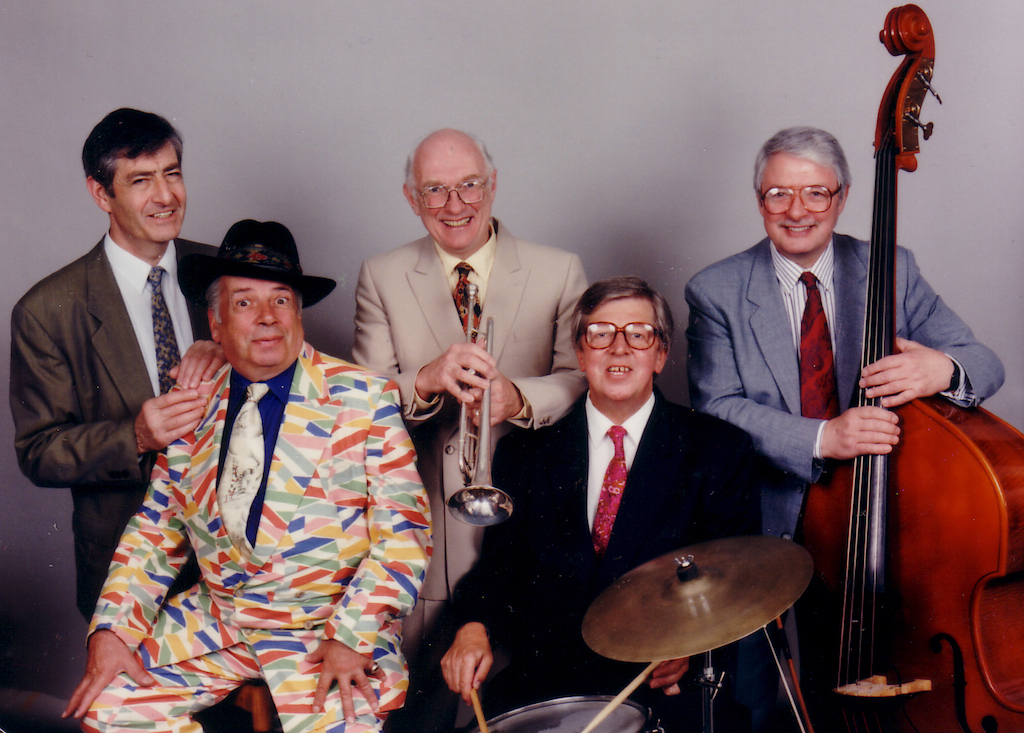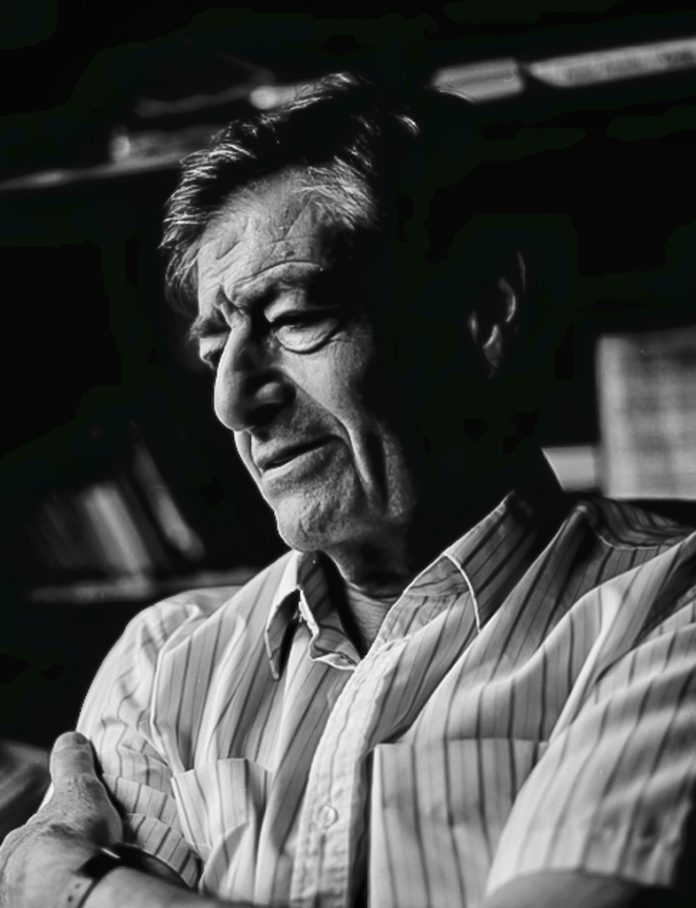Ron Rubin, the pianist, bassist and poet for many years at the centre of the British jazz scene, has died aged 86.
Ron Rubin was born in Liverpool, on 8 July 1933, to David and Louise Rubin. Music was important to the family and Ron learned piano from an early age. He became interested in jazz in his early teens whilst attending Liverpool College school, but was suspended for playing jazz on the school piano. That didn’t put him off. He began to study law under his Uncle Abe (surrealist painter Abraham Newman) but the work wasn’t for him and he quickly signed up for the Royal Army Service Corps for a two year stint.
Whilst in the army he played piano with the Rhine River Jazz and Germany Rhine bands in Germany where he was stationed, and on being demobbed in 1953 he picked up some gigs around Merseyside. He was also playing guitar and clarinet at this time, but practised hard on the piano and found solo work at clubs in London’s Soho. He was still semi-pro at this time, as he was working in his father’s office.
He took up double bass in 1955, buying his first bass from Hessy’s in Liverpool. It was a Selmer, plywood laminated job with a sunburst finish that cost £65 on the “never-never” as Ron put it. Within a few weeks he was doing gigs on bass with Ralph “Bags” Watmough and Tony Davis’s Gin Mill Four (who became the Liverpool Spinners). In 1957 he played opening night at the Cavern Club with the Merseysippi and Watmough bands. In 1959 he met his wife-to-be Marie at the Jacaranda Club in Liverpool and in 1961 they moved to London.
In the 60s Ron played with a wide variety of bands on piano and double bass: Glyn Morgan, Dick Williams, Brian Leake, the Fairweather-Brown band, also Mike Taylor, Group Sounds Five, the Ronnie Selby Trio, Fat John Cox and Bruce Turner. With those groups he accompanied American musicians Bill Coleman, Henry “Red” Allen and Ray Nance and with groups like those of Long John Baldry and the Hoochie-Coochie Men, and Manfred Mann. He was involved in Live New Departures, the jazz and poetry sessions with Mike Horovitz and Pete Brown.
Ronnie Scott pointed Ron in the direction of the Indigo Jazz Club in Palma de Mallorca, recently opened by Ramón Farrán and Robert Graves. It had regular visiting guest stars such as Tubby Hayes, and after a few six-month stints he and Marie moved there in 1969, with their four children, staying for three years.
Back in the UK, through the 1970s Ron toured with bands such as the Lennie Best Quartet, Sandy Brown, Keith Ingham, Alex Welsh and his good friend Colin Purbrook, also accompanying well-known singers such as Billy Eckstine. He had his own band at the Roundhouse Bar and was with the John Picard Band for three years. He recorded regularly, and Humphrey Lyttelton reviewed his playing with Tony Coe on the album Coe-Existence as being in “that select category whose sound, intonation and swing merit the term ‘impeccable’. Listen to him on Voce and ask yourself when you heard better or more apposite bass-playing”.

In the 1980s Ron toured with Wild Bill Davison and played with Fatty George in Vienna, Geoff Simkins, Keith Smith and Oscar Klein in Zurich, George Howden and Brian Leake in London and with Earl Okin, as well as doing solo gigs around Europe and touring with Donald Swann for the Swann In Jazz shows. At the end of the 80s, Ron was on bass with the Bruce Turner Quartet before joining George Melly and John Chilton’s Feetwarmers. In 1990 he played the Edinburgh Festival with Campbell Burnap’s band, then joined George Melly and John Chilton again for three years, this time on piano. He continued playing and touring, but began to slow down after surviving cancer in 2001. It was an enjoyable occasion when he was able to play with his brother John in 2006 at the Isle of Man Jazz Festival.
Ron was a published haiku and limerick writer. In the foreword to the 1986 book A Fanfare Of Musical Limericks Humphrey Lyttelton said “Any musician will tell you that [Ron’s] limericks are no haphazard exercises in doggerel, but encapsulate profound truth”. Here’s one:
The trumpet’s a heavenly thing,
Its fanfares are fit for a king;
Gabriel blows one –
Know why he chose one?
‘You can’t get those harps, man, to swing!’
In his later years Ron spent many a happy hour writing his Jottings From A Jazzman’s Journal, an anecdotal (as yet unpublished) record of his life as a musician. He died suddenly 14 April 2020 and is survived by his wife and family, deeply loved and missed by all.


